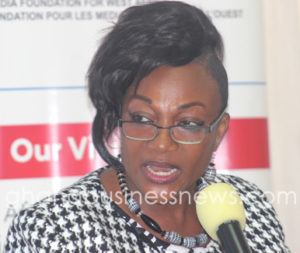Government to launch strategies on Disability Mainstreaming in MMDAs
 The Government will soon launch the framework and strategies on Disability Mainstreaming in Metropolitan, Municipal and District Assemblies (MMDAs), Madam Otiko Afisah Djaba, the Minister of Gender, Children and Social Protection, has announced.
The Government will soon launch the framework and strategies on Disability Mainstreaming in Metropolitan, Municipal and District Assemblies (MMDAs), Madam Otiko Afisah Djaba, the Minister of Gender, Children and Social Protection, has announced.
She said one of the strategies to properly address the challenges that persons with disabilities (PWDs) face was to make disability issues an integral part of the day-to-day activities of all institutions, including the MMDAs.
Madam Djaba made the disclosure on Monday, at the opening ceremony of the introduction of a short course on Access to Justice for PWDs at the Faculty of Law, University of Ghana (UG) in Accra.
The course is being organised by the Faculty of Law, UG, in collaboration with Open Society Initiative for West Africa (OSIWA).
PWDs continue to be excluded from effective participation in justice delivery through two main obstacles expressed in the normative framework – referring to the space laws, both national and international, provide for the recognition of the rights of PWDs – and the institutional framework, which deals with law enforcement and the court systems.
These frameworks translate into access to the law; participation in the justice system as well as legal education and training.
In the light of the above, the course aims at adopting a right-based approach to improve the inclusivity and provide comprehensive access to justice for PWDs, either as direct or indirect participants and whether as victims of crime, suspects, witnesses, plaintiffs, defendants, appellants, remand prisoners and/or prison inmates.
Madam Djaba said the Gender Ministry had designed certain interventions to address accessibility challenges, citing that the Ghana Accessibility Standard for the Built-environment (GASB) had already been launched.
She noted that the purpose of the standard was to provide specifications for policy makers, implementers and service providers to ensure quality and non-discriminatory services in the built environment and also seeks to contribute to universal accessibility in the built-environment.
She said relevant institutions such as the Works and Housing, and Roads and Highway Ministries, Town and Country Planning Department were being engaged to mainstream the provisions in the standards into Ghana’s building regulations; so that they became requirements for the award of contracts in all built-environment.
She said the National Council on Persons with Disability (NCPD), had collaborated with the Disabled People’s Organisations (DPOs) and other stakeholders to develop draft guidelines on the use of appropriate and accessible forms of communication including different language, displays of text, braille, tactile communications, large print, accessible multimedia and the use of sign language interpretations.
She noted that when finalised, institutions (both public and private) would be required to provide accessible information and services in line with the guidelines.
The Minister said in spite of protection afforded under international human rights law, particularly the Convention on the Rights of Persons with Disability (CRPD) and the Ghana Disability Act, PWDs in Ghana continued to face obstacles in terms of access to justice.
She said legal barriers to justice for PWDs included instances where the rights of PWDs were not enshrined in law, or where law, policy or practice were contrary to provisions of the CRPD.
Madam Djaba said negative attitudes and false beliefs or assumptions on the part of relevant actors’ including police, lawyers and judges, might result in PWDs being considered and treated as less credible at all stages of the legal processes.
She said PWDs could not seek remedies for justices if they did not know what their legal rights were, or how to exercise them under the law.
Madam Mawunyor Yakor-Dagbah, National Vice President, Ghana Federation for the Disabled, said: “when justice is inaccessible, the result is injustice. Injustice leads to bitterness, anger, revolt and ultimately political and social disintegration. In this regard, there is a real, compelling and immediate need to eliminate barriers to access to justice for persons with disabilities.”
Ms Afia Asare-Kyei, Programme Manager, Law, Justice and Human Rights, OSIWA, urged people to desist from using words such as “disabled” or “handicapped” in referring to the physically challenged.
Ms Josephine Nkrumah, Chairman, National Commission for Civil Education (NCCE), who chaired the function, called for justice for all manner of persons in society.
“The journey to ensure that PWDs have access to justice must be free of all obstacles; whether by laws, practices, infrastructure; so that we together can realise the objective of access to justice without any forms of hindrance,” she said.
Dr Kwadwo Appiagyei –Atua, Senior Lecturer, School of Law, UG, said the course was to identify the scope of the right to access to justice for PWDs and find barriers that impeded access to justice.
He said the course would further produce solutions to the identified barriers and engage PWDs in designing laws and policies aimed at equity and inclusion.
Source: GNA
